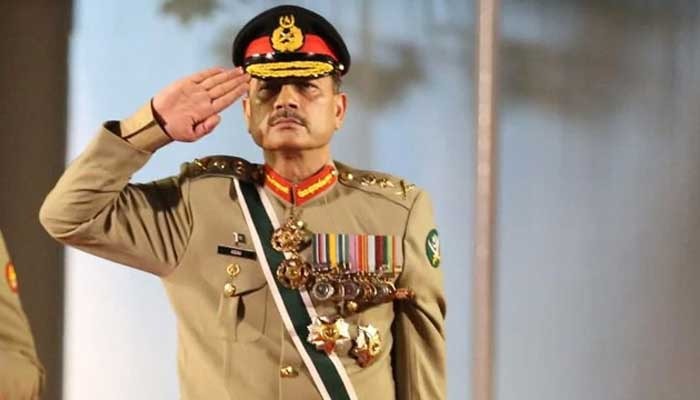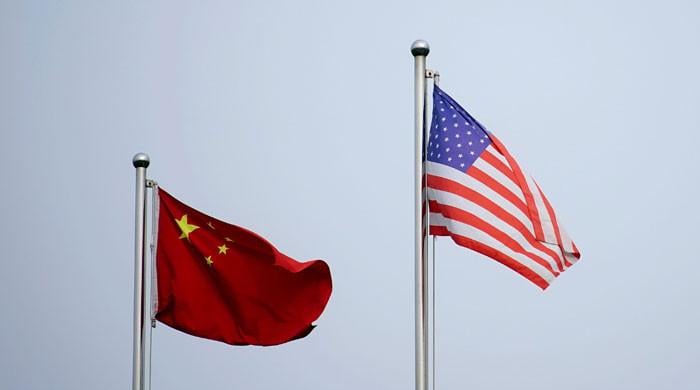Time for a hard state
Hard state is one where rule of law is paramount, institutions are strong and governance is efficient and disciplined
April 15, 2025

In an era marked by political polarisation, economic instability and an erosion of trust in public institutions, Pakistan stands at a pivotal crossroads. The recent remarks by Chief of Army Staff General Asim Munir before the National Security Committee of Parliament highlight a critical and urgent need for the nation: to move from being a ‘soft state’ to a ‘hard state’.
A hard state is one where rule of law is paramount, institutions are strong and governance is efficient and disciplined. The term ‘soft state’, first coined by economist Gunnar Myrdal, refers to a state where laws are present but rarely enforced.
In Pakistan, this has become increasingly evident with widespread issues like rampant smuggling, tax evasion, unchecked land mafias and delayed or selective judicial decisions. The failure of governance in these areas has not only undermined the authority of the state but also diminished the public’s trust in its institutions.
For far too long has Pakistan operated as a soft state, where laws often exist on paper but lack rigorous enforcement. The consequences of this are apparent in the persistence of corruption, politicised institutions, lawlessness and the inconsistent application of justice.
Weak institutional control, compounded by a culture of impunity, has allowed criminal networks, land mafias and economic irregularities to thrive unchecked. This environment has led to a severe erosion of public trust, stunting the nation’s progress and economic stability.
Pakistan’s current challenges, ranging from economic mismanagement to internal security threats, require more than short-term political fixes. The country needs a profound shift toward governance that consistently enforces laws, strengthens institutions and maintains policy continuity beyond political cycles.
This is the essence of the ‘hard state’ model — not authoritarianism, but disciplined governance that places the national interest above political expediency. A hard state is one where justice is served without bias, institutions function independently and effectively and rule of law prevails.
Countries around the world offer valuable lessons for Pakistan as it seeks to reinforce governance. Singapore, once plagued by corruption and poverty, transformed into one of the world’s most efficient states through the establishment of strong institutions, strict enforcement of rule of law and merit-based governance.
Similarly, China’s rapid transformation from a largely agrarian economy to a global economic powerhouse was powered by disciplined governance and long-term strategic planning. Even Turkey, amidst regional pressures and internal challenges, demonstrated how national cohesion and economic self-sufficiency could be achieved by reinforcing state strength.
These examples demonstrate that the transition to a hard state is crucial for Pakistan’s survival and future success. The transformation from a soft state to a hard state requires more than just military or executive action. It demands a national consensus involving political parties, the judiciary, civil society, the media and the public.
Rebuilding trust in Pakistan’s governance system is a collective endeavour. The time has come for the country to embrace the hard state model – not as a distant ideal, but as an urgent national imperative.
A hard state is not synonymous with authoritarianism. It is about effective governance, rule of law and national discipline. Countries like China and Singapore succeeded by prioritising strong institutions, unwavering adherence to rule of law, and fostering integrity in governance.
For Pakistan to follow suit, certain key reforms are essential. We need institutional reforms. Depoliticise the civil service, police and regulatory bodies, ensuring they operate based on merit and performance.
Judicial overhaul and timely justice: Ensure speedy, transparent, and equitable access to justice, eliminating delays and ensuring judicial accountability. We need to uphold rule of law. A depoliticised and effective police force is critical for impartial law enforcement. A police force free from political influence ensures that justice is applied uniformly, irrespective of individuals’ status or connections.
There is a need to combat corruption. A corruption-free environment is foundational for a hard state. Restoring public trust in state institutions requires transparency, accountability, and fair law enforcement. We need economic sovereignty as well. Integrate the informal economy into the formal tax system, tackle smuggling and hoarding, and ensure that state agencies coordinate effectively in enforcement.
Strengthening local governance would go a long way. We must empower local bodies with adequate resources, training and autonomy to address the needs of citizens at the grassroots level.
Pakistan must counter divisive narratives — whether ethnic, sectarian or political — by implementing inclusive policies and fostering civic education. The country also needs to work on strategic communication. Engage the public proactively, combat misinformation and reinforce a collective sense of national responsibility.
The bureaucracy must be depoliticised, focused solely on service and efficiency. There is also a need for consistent, impartial law enforcement across the board to eliminate selective justice and political victimisation. Through sustainable policy implementation, policymakers must focus on long-term strategies that transcend electoral cycles to ensure stability and continuity.
Another reform area is to ensure public trust and accountability so that citizens see that the law applies equally to all, with accountability enforced fairly and transparently. Apart from that, there should be efforts at fostering a sense of civic responsibility and patriotism, especially among the youth, to create a disciplined, informed and unified citizenry.
Pakistan urgently needs taxation reforms to broaden the tax base, ensure fairness and reduce dependence on foreign loans. A streamlined tax system will help fund essential services and social welfare while curbing corruption.
A fair and transparent National Finance Commission (NFC) award is vital to equitably distribute resources across provinces and reduce regional disparities. This would promote national unity and address the development needs of all regions.
A common education syllabus can foster national cohesion by promoting shared values and a unified identity across all regions, preparing students for future governance challenges.
Pakistan finds itself at a critical juncture. The concept of a hard state is not merely an ideal but a necessity for Pakistan’s future. To build this hard state, Pakistan must focus on depoliticised policing, judicial reforms, economic discipline and national unity. By enforcing laws equally, empowering institutions and promoting a culture of accountability, Pakistan can begin to rebuild the trust of its citizens and pave the way for a stable and prosperous future.
Only through the establishment of a hard state can Pakistan secure its future and ensure justice, security and economic opportunity for all its citizens.
The writer is a practising advocate of the Supreme Court of Pakistan with 25 years of legal standing. He can be reached at: [email protected]
Disclaimer: The viewpoints expressed in this piece are the writer's own and don't necessarily reflect Geo.tv's editorial policy.
Originally published in The News











